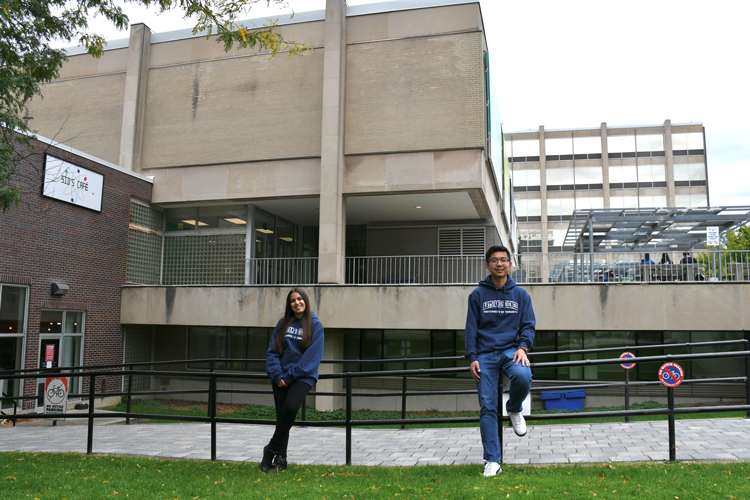The Faculty of Arts & Science today announces a transformative physical renewal, the redevelopment of Sidney Smith Hall, to create an outstanding space for innovative learning, teaching and research at the heart of Canada’s leading university. This significant revitalization project, currently in early planning stages, will help redefine the Faculty’s home on the University of Toronto’s St. George campus.
“Our goal is to create a contemporary, accessible and state-of-the-art space for our students, staff and faculty, and the wider community,” says Melanie Woodin, dean of the Faculty of Arts & Science. “As dean, I am really pleased to launch this exciting project that will advance and grow our teaching and research mission.”
The ambitious project will provide a new facility while extensively renovating the north vertical portion. It will address much-needed academic, administrative, student and ancillary space needs, such as lounge, study and collaboration spaces, a community marketplace to gather and eat, event and meeting space, and leading-edge classrooms.
“As the University of Toronto heads into its third century, we envision this new footprint will be a magnet for local and international engagement, and a hub to inspire thought-provoking events and respectful, authentic dialogue on the critical issues facing our society,” adds Woodin.

The renewal project aims to create a more recognizable identity for the Faculty of Arts & Science and foster greater connections across its community, comprising more than 70 academic departments, schools, centres and institutes in 40 academic buildings and colleges across the St. George campus.
“It’s really exciting to hear about this project. Better classrooms, more food options, more event space and the addition of common areas outside are all really beneficial to students in the long run,” says PhD student Veronica Bergstrom of the Department of Psychology at Arts & Science.
The largest academic division at the University of Toronto — and one of the largest in North America — Arts & Science has grown in tremendous breadth and depth since the building opened in 1960. While the site is one of the most well-travelled places on campus due to its central location and teaching space, the building’s age and size are significantly constraining the Faculty’s potential as a research and leadership centre locally, nationally and internationally.
The University acknowledges it has a responsibility to address the building’s accessibility and improve student spaces as a central part of its redevelopment, and must further its commitment to fighting climate change through the design and construction of a high-performance Net-Zero Carbon certified building.
The University acknowledges it has a responsibility to address the building’s accessibility and improve student spaces as a central part of its redevelopment, and must further its commitment to fighting climate change through the design and construction of a high-performance Net-Zero Carbon certified building.
“From a user’s point of view, it's unfortunately difficult to navigate,” says undergraduate student Andrew Yin, who is in his final year at Innis College. “I've gotten lost in the basement and lost trying to get to the food hall; some areas are not connected. There are a lot of areas where improvement is needed. I'm quite glad the University has not only recognized these issues and is trying to rebuild the site, but also considering the students point of view and trying to hold consultation sessions.”
Scott Mabury, vice-president of operations and real estate partnerships, says like all major capital development projects, the process is lengthy and will include opportunities for viewing models, renderings and engagement with design ideas, as architects are selected and the plan is developed over the next several years.
“This plan will allow growth for the Faculty of Arts & Science well into the future,” says Mabury. “It will be a thoughtfully designed, sustainable and accessible building complemented with a large, and welcoming open space serving our entire community for generations to come.”
Design team selection for this project is scheduled to take place over several months, starting in spring 2022.

